Integrations > Authentication and SSO
Integrate Microsoft Entra ID SSO
Connect Microsoft Entra ID (formerly Azure Active Directory) to Tallyfy in about 30 minutes. Your users get automatic authentication and account creation - no password juggling.
- Microsoft Entra ID access
- Administrator privileges in Microsoft Entra ID
- Tallyfy Professional or Enterprise plan
- SAML configuration values from Tallyfy Support
- Create a Microsoft Entra ID enterprise application
- Configure SAML settings in both systems
- Test the SSO connection
Microsoft Entra ID, Tallyfy Support, and you work together to set up single sign-on.
What to notice:
- Steps 1-10 show the one-time setup between you and Tallyfy Support
- Steps 11-15 show what happens every time someone logs in
- You can’t skip the support ticket (step 1)
-
Sign in to the Azure Portal ↗ with administrator credentials
-
Navigate to Microsoft Entra ID service (may still show as Azure Active Directory in some interfaces)
-
Select Enterprise Applications from the Manage section
-
Click +New application
-
Choose Create your own application
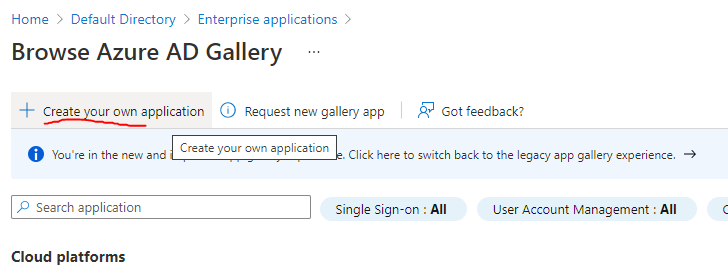
-
Enter “Tallyfy” as the application name
-
Select Integrate any other application you don’t find in the gallery (Non-gallery)
-
Click Create
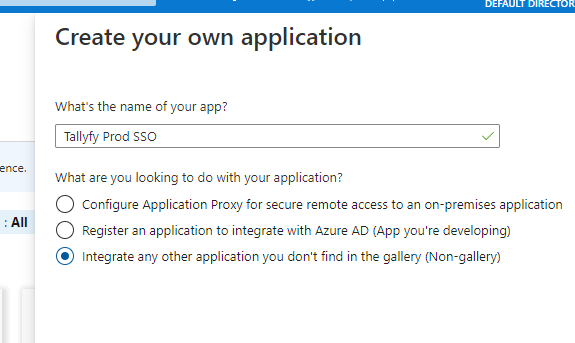
Assign users now or after setup - your choice:
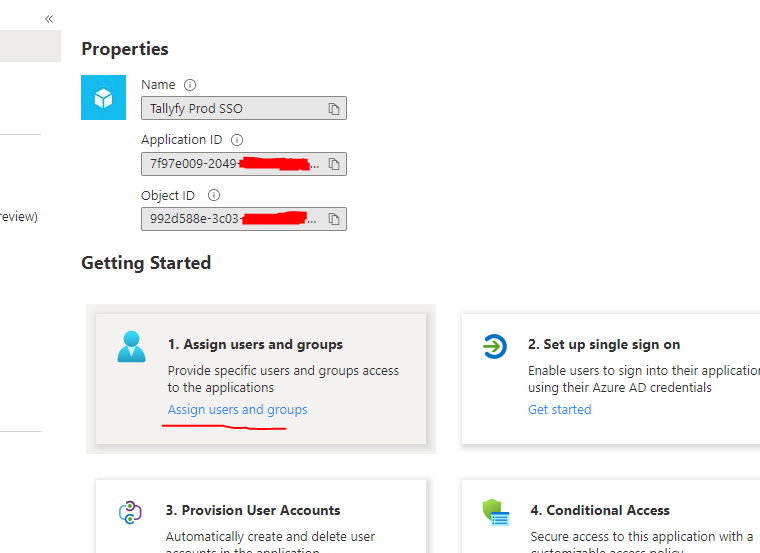
-
In the application’s sidebar under Manage, select Single sign-on
-
Choose SAML as the sign-on method
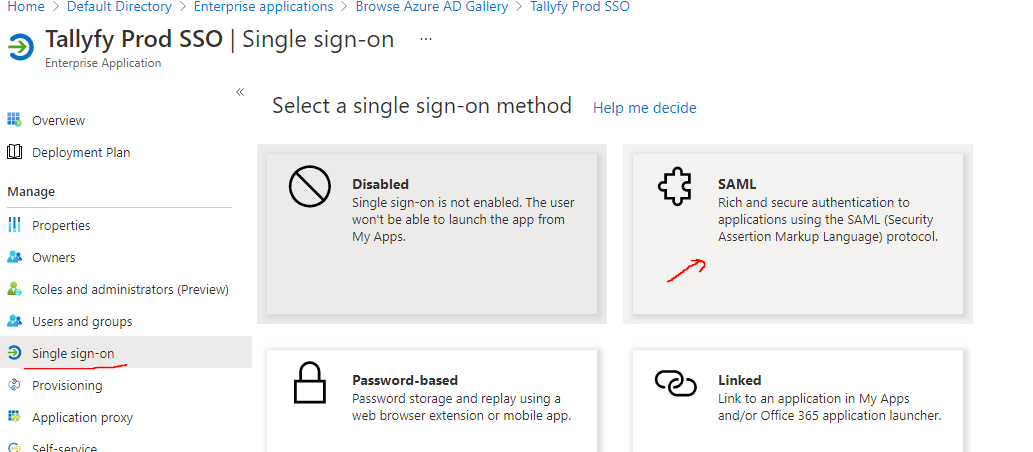
-
Click Edit in the Basic SAML Configuration section.

-
Get Tallyfy’s SAML values from your organization profile in Tallyfy.
-
Go to Org Settings tab.
-
Click Add Configuration Details.
-
Scroll down to find the default SAML values.


-
Copy Tallyfy’s SP ACS URL to Microsoft Entra ID’s Reply URL (Assertion Consumer Service URL) field.
-
Copy Tallyfy’s SP Entity ID to Microsoft Entra ID’s Identifier (Entity ID) field.
-
Click Save.
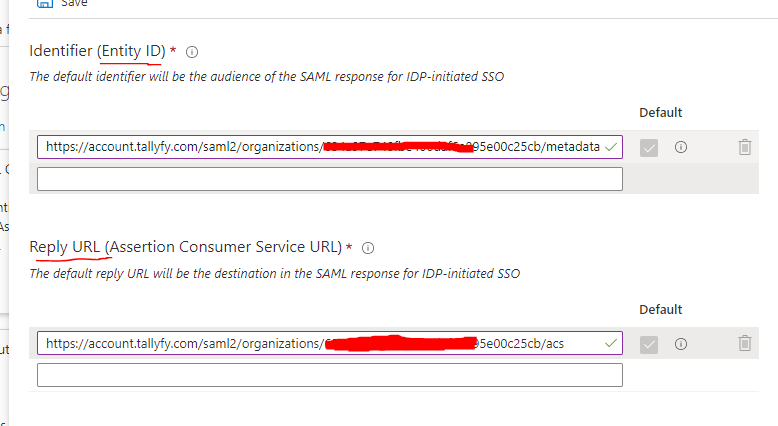
Get this right or users won’t sync. Here’s each attribute:
-
Configure Name Identifier (User ID): Click the Unique User Identifier (Name ID) row.
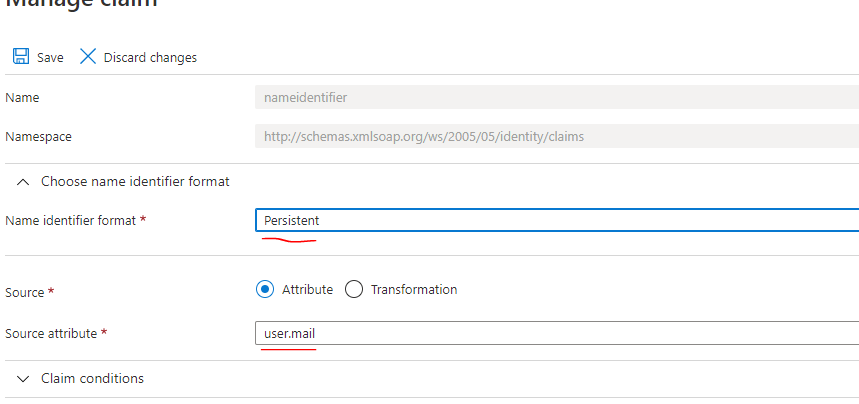
-
Select Persistent for Name identifier format.
-
Choose user.mail for Source attribute.
-
Click Save.
-
Configure First Name Attribute: Click the attribute row (typically user.givenname).
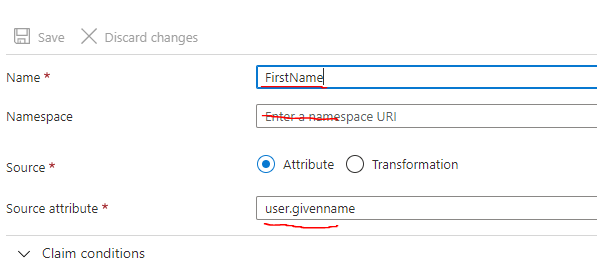
-
Set Name to:
FirstName(capitalization matters). -
Clear the Namespace field.
-
Set Source attribute to:
user.givenname. -
Click Save.
-
Configure Email attribute: Set Name to
Email, clear Namespace, set Source attribute touser.mail. Click Save. -
Configure Last Name attribute: Set Name to
LastName, clear Namespace, set Source attribute touser.surname. Click Save.
Your final attribute configuration should match this:
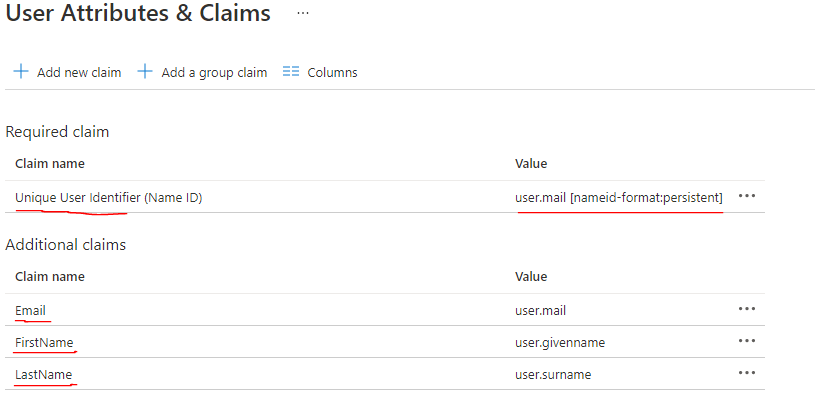
You need three things from Microsoft Entra ID:
-
Go to the Set up section.
-
Copy the Login URL.
-
Copy the Microsoft Entra ID Identifier.
-
Download the Certificate (Base64) from the SAML Signing Certificate section.
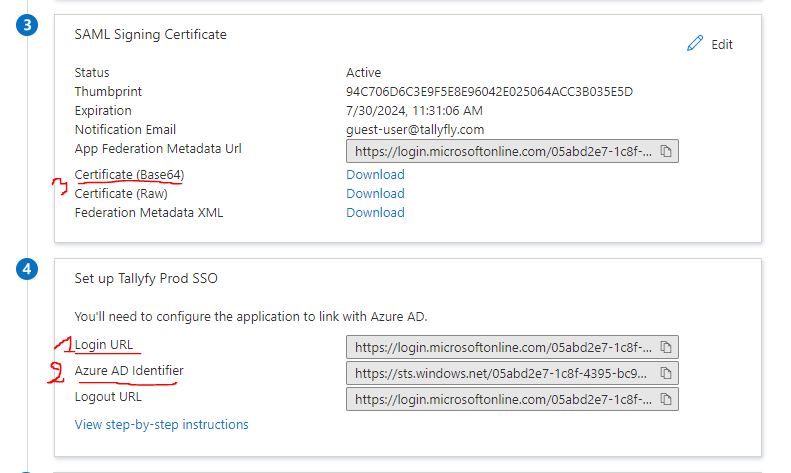
-
Send the Microsoft Entra ID SAML information to Tallyfy Support
-
Tallyfy Support configures your SAML settings
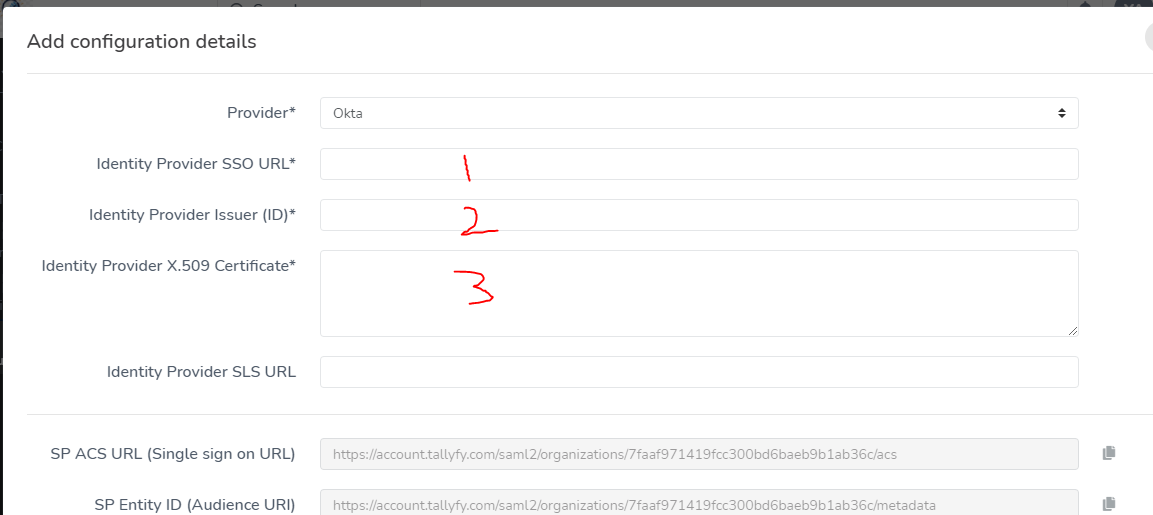
After Tallyfy Support confirms everything’s ready:
-
Turn on the SAML activation toggle

Almost done:
-
Get your organization’s Tallyfy login URL from the SAML setup modal (Tallyfy Support provides this)
-
Share this URL with users who have Microsoft Entra ID access

What happens when users visit this URL?
- Existing Tallyfy users get authenticated instantly
- New users are created automatically on first login
Users can’t log in? Check these:
- User is assigned to the Microsoft Entra ID application
- Attribute mappings are exact (names and capitalization)
- SAML certificate hasn’t expired
- Users are using the SSO URL (not regular login)
- Still stuck? Contact Tallyfy Support
Authentication > Integrate Okta SSO
Authentication > Integrate OneLogin SSO
Authentication > Integrate JumpCloud SSO
Was this helpful?
- 2025 Tallyfy, Inc.
- Privacy Policy
- Terms of Use
- Report Issue
- Trademarks